Chapter 6: The Political Threat of Toddlers
On the importance of developing Autonomy vs. Shame & Self-Doubt
Welcome to STRONGWILLED, a reader-supported multimedia project focused on helping people raised in RAP households develop autonomy and find community. We recently were interviewed by RNS on this project, and we are so happy to be a part of this grassroots movement of survivors!
In chapter 6, we discussed the wildly different approaches of Religious Authoritarian Parenting authors and voices like Mr. Rogers and Dr. Spock. Today, we zero in on a specific childhood development phase—toddlerhood—and how the Religious Authoritarian Movement saw this integral moment in a child’s autonomy development as a threat to the goal of consolidating power to fight against their most feared enemies: those seeking for the rights of women, of queer people, and of BIPOC communities. If you like and appreciate this project, please consider supporting us: by liking, sharing, or becoming a paid subscriber.
“A toddler is the most hard-nosed opponent of law and order”- Dr. James Dobson, Dare to Discipline
“Everyone who has raised a toddler has probably been confronted at some point by a full-blown temper tantrum. Its fury is something to behold coming from a kid who only weighs twenty-five pounds. Usually a firm hand will discourage such violent behavior — but sometimes not. Some children throw tantrums specifically for the purpose of stirring up and manipulating the big powerful adults who claim to be in charge.” — Image and text from Dr. James Dobson’s Family Talk Facebook page from October 22, 2012.
At first blush, it seems odd that religious authoritarian parenting authors gave so much attention to toddlers. It’s startling, the way they spoke in battle metaphors about interactions with a child who hadn’t yet reached three feet tall, just learning to walk and talk. Hearing these men discuss the threat of a disobedient two year old feels downright ridiculous. But in reality, these authors were tapping into a universal truth. There is something incredibly important about the toddler years. It’s during this time that children begin to develop a sense of autonomy and individuality. They are asking, Is it okay to be me?1 And in a patriarchal, heteronormative system, that is a very threatening question.
During the toddler years, there's a significant psychological process developing amidst the everyday experiences of picking out clothes, saying “NO!” to bathtime, and choosing which food they put in their mouth2. These little humans are learning whether it’s okay to have desires, preferences and a self-will that diverges from their parents. They’re discovering whether making their own choices will be supported or shamed, and they are absorbing all the feedback they get from their caregivers. The experiences toddlers have during this time period will have a deep impact on how they approach their life in the following years. It’s during this season that they learn whether or not they can trust their own desires, or if following them will lead to pain and shame. They are wrestling through their own identity development, exploring what it means to be themselves, and whether they will be accepted by their family3.
Starting at less than two years old, young children begin asking their parents an existential question: Can I be my own person, or am I just an extension of you? The answer to that question will shape how a child grows into an adult, and what sorts of choices they make. Will they learn to choose their own preferences, or instead will they make decisions that appease their parents in order to get the care they need?
Decades before the beginning of the RAP movement, developmental psychologist Erik Erikson published his theory of psychosocial stages, exploring what identity development looked like in each phase of life. Toddlers are in a phase he labeled, “Autonomy Versus Shame and Self-Doubt.” He believed that it was during this time that a child learned whether they could trust themselves and develop autonomy, or if they would fall into patterns of feeling bad about who they are and their desires. He didn’t believe toddlers should have free reign, but that it was important for parents to hold boundaries both gently and firmly, while still allowing a child to express themselves. He believed parents should help a child “to stand on his feet more firmly,” and “learn to delineate his world as ‘I’ and ‘you.’4 In other words, in healthy families, the child learns that they are their own person, separate from their parents.
Erikson believed autonomy was built upon self trust, and wrote that “for the growth of autonomy, a firmly developed early trust is necessary,” as a child builds “faith in himself.”5 If toddlers have parents who honor the child’s preferences, and make space for a divergent opinion, they grow up to be adults who trust themselves and feel confident in making decisions for themselves. If they have parents that routinely punish and shame their expressions of autonomy, Erikson noticed that they would grow to not only distrust their own preferences and will, but to dissociate from them, falling out of touch with their own desires6.
While the toddler years are not the only definitive developmental stage, they have long been considered a key time when a person either develops confidence to make their own decisions, or or learns to defer to external forces and structures to determine their life’s course (while suppressing their own ambitions or desires). Which is why it makes sense that RAP authors focused much of their parenting advice on the toddler years. Will a young child develop individuality or conformity? Autonomy or shame and self doubt? Will a toddler learn, on a deep experiential level, that they can trust themselves to make decisions, or would they learn to automatically capitulate to the approved authority for the rest of their lives?
In the mainstream field of psychology, experts understood that a young child’s opposition to their parents was simply a form of practicing autonomy and individuation. Erikson suggested parents provide a “gradual and well-guided experience of the autonomy of free choice.”7 Dr. Spock, the most well-known 20th century parenting expert, acknowledged that, “It’s often hard to get along with a child between two and three,” and recognized this as a natural process, encouraging parents to be understanding during this period8. These experts knew that children, who held very little power in their lives, needed the experiences of expressing preferences, setting boundaries, and practicing making their own choices.
In contrast, religious authoritarian parenting books taught parents that this normal developmental process was evidence of a child's sinful nature and must be disciplined. In this framework, children were taught that when they diverged from their parents, that preference was sinful, evil, and selfish. Developing autonomy and individuality was a shameful practice, and this core message was reinforced through church services, Christian books, and Christian media at every turn. While non-authoritarian contemporaries perceived this period as simply a child finding a sense of self, RAP authors like John MacArthur saw it as proof that “the human heart is programmed for sin and selfishness…every baby has the potential to become a monster.”9
RAP authors had good reason to frame individuality and autonomy as spiritual evils that needed to be eradicated: those qualities were a threat to their vision for society. Dobson, MacArthur, and others were correct in their assumptions that allowing children to develop individuality and autonomy would indeed lead to a society that differed greatly from their patriarchal dreams. These men envisioned a society where a younger generation would grow into adults who defer to their parents, enter into white heterosexual marriages, invest in local churches, and vote conservative politicians into office who would enact legislation that would control women’s bodies, restrict the rights of LGBTQIA+ people and uphold the white racial hierarchy. And they also hoped that this younger generation would ultimately birth and raise their own children who would do the same. In a society they saw as becoming increasingly secular and pluralistic, the political goals of the religious right hinged on how children were raised—and specifically if they could be taught to immediately comply with authority in the home, and submit to their designated religious and political leaders for the rest of their lives.
Simply allowing children to develop their own individuality and autonomy in the toddler years and beyond put the white patriarchal Christian vision of society at risk. When children are offered autonomy and individuality, they make choices for themselves: career decisions, whether they want to continue in their parents’ religious tradition, how they want to live out their sexual orientation or gender expression, and whether they want to continue upholding systemic racism and misogyny. If children were encouraged to develop autonomy—of the mind and of the body—then the conservative hopes for the future looked bleak.
“The toddler years are critical to a child's future attitude toward authority”—Dr. James Dobson, The New Dare to Discipline
Enter James Clayton Dobson Jr., who earned his PhD in Child Development from the University of Southern California in 1967. Dobson, a devout and conservative Christian who was the assistant for known eugenicist Paul Popenoe, went on to work at the LA Children’s hospital in the division of Child Development for 17 years before starting his non-profit organization named Focus on the Family.10 As we wrote in an earlier chapter, Dobson was not ignoring the work of his peers like Erik Erickson, Dr. Spock, or Margaret McFarland—he was actively against them. Dobson purposefully used his background and credentials to teach parents how to target strategic developmental stages in childhood for authoritarian political purposes. After several decades of writing, speaking, and delivering radio messages on child discipline, Dobson went on to become one of the most successful political lobbyists in the United States—with the majority of his victories centering on the oppression and subjugation of women and LGBTQIA+ folks, and the continuation of white patriarchal norms.
Currently, Dobson is partnering with Liberty University to offer the James C. Dobson Center for Child Development, Marriage, and Family Studies program where people can get their MA in both child development and public policy for the preservation of families.
For him, and many other RAP authors, the personal elements of child-rearing were and are inherently political—and discipline methods at strategic developmental stages are the backbone of their political agenda. So is it any coincidence that Dobson told parents to begin hitting their children at 18 months old—the very same age that Erikson, two decades earlier, had identified as the time when a child begins to develop autonomy? It turns out, toddlerhood is a threatening age for authoritarian leaders, and they knew that squashing autonomy had to begin early, shaping what these children would come to expect from their world and from authority figures.
Toddlers in these kinds of homes asked, Is it okay to be me? and religious authoritarian parenting methods answered these questions with a resounding no. They used shame and pain to systematically assure children that there was no room for divergence from their parents. On the surface, there was room for different preferences—a favorite color, a preferred ice cream flavor—but parents were trained in hawk-eyed vigilance against expressions of self that fell outside of the hierarchical, obedience-based family structure. Media, gender expressions, gender roles, bodily autonomy, attitudes towards authority and more were all heavily policed in these kinds of homes. The message that everyone from toddlers to adolescents received was: You’re allowed to be you, so long as your identity fits in the god-ordained hierarchy.
To teach a child that they can be their own person, make their own choices and hold their own preferences is not only a human-centered approach to child development, but an inherently queer one11. As it turns out, authoritarians have long known that encouraging individuality and expansiveness in children is a direct threat to upholding authoritarian structures in both the family unit and in society as a whole. As conservatives taught parenting methods intended to force children to conform, the goal was to discourage and punish individuality, in favor of a prescribed way of living. Teaching a toddler to defer to external forces laid an important foundation in developing an adult who would yield to authoritarian forces.
The good news is that even if your budding sense of self was targeted by these kinds of methods in early childhood, you can do the work of uncovering your will and reclaiming autonomy right now. Many of us are already doing this work! We’re learning to trust, listen to, and honor the strong-willed toddler within us that has always been there. We’re exercising autonomy and recognizing our preferences on several fronts, including—but not limited to—gender and sexuality and bodily autonomy.
And many of us are raising children and breaking the cycle of religious authoritarianism that relies on breaking the will of toddlers. Parenting like this—which centers the autonomy of all involved—paves the way for children who are in touch with their own sexuality and gender expression, who say “no” to patriarchal expectations, and who upset white supremacist norms. To allow a toddler to have safety in developing their autonomy like Erickson recommended creates both positive mental health outcomes and people who are fully informed about the choices they want to make and the ideologies they want to uphold. And we here at STRONGWILLED believe this is what can and will bring about positive societal change.
If you grew up under this kind of parenting, we want to take some time to sit with the feelings and emotions these findings can bring up. As an adult, do you struggle with feeling as if your own internal compass is selfish or bad, or that you can’t trust yourself or your decisions, or that you owe it to your parents to cater to their beliefs and preferences? How does that impact you today?
Thank you so much for your support for this project. In two weeks, we will be looking at another important developmental stage that RAP authors focused on for their own authoritarian purposes: adolescence, or identity versus role confusion. Since it's pride month, our Thursday discussion post this week will ask these kinds of questions: how has your experience with this parenting style impacted your ability to express your gender and sexuality? How do you view these expressions as related to your autonomy? Please join us as a paid subscriber to have this discussion in a safe and supportive community.
Marc Grau Grau, Mireia Las Heras, and Yasin Rofcanin, eds., Human Flourishing: A Multidisciplinary Perspective on Neuroscience, Health, Organizations and Arts (Germany: Springer International Publishing, 2022), 152.
To be clear, healthy parents do sometimes insist on things like bedtimes, baths, and holding hands in dangerous environments like parking lots—but they don’t shame or punish their children for wishing they could stay up all night, go forever without bathing, or run amuck in a busy parking lot. Instead, they recognize their desire for autonomy as an important part of being human, even if they can’t fully exercise it yet.
Child psychologists recognize adolescence as a similar phase that mirrors the toddler years in identity development, which also happens to be another age that authoritarian parenting authors target—more on that soon.
Erik Erikson, Identity: Youth and Crisis (Austen Riggs Monograph. W. W. Norton & Company, 108. Kindle.
Erikson, Identity: Youth and Crisis, 110.
Erikson writes: “In adolescence, for example, [he will] find himself unable to get away even with the wish [of autonomy].” Erikson, Identity: Youth and Crisis, 111.
Erik Erikson, Child & Society, 226.
Benjamin Spock, The Common Sense Book of Baby and Child Care, 353.
John MacArthur, Successful Christian Parenting, 29.
https://govinfo.library.unt.edu/ngisc/members/dobson.html
Queer ideology challenges traditional frameworks from dominant culture, incorporating experiences and perspectives of marginalized identities.


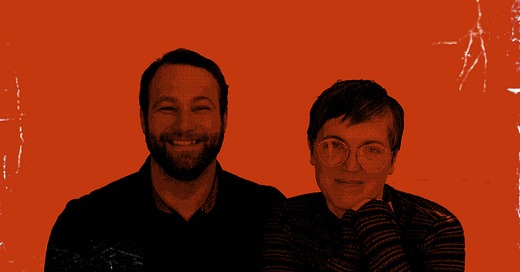



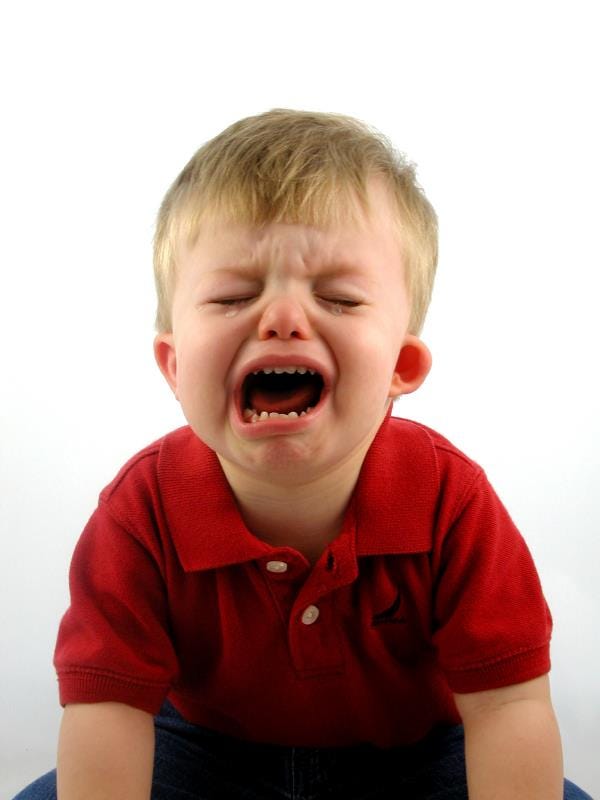
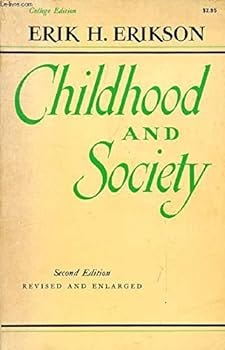
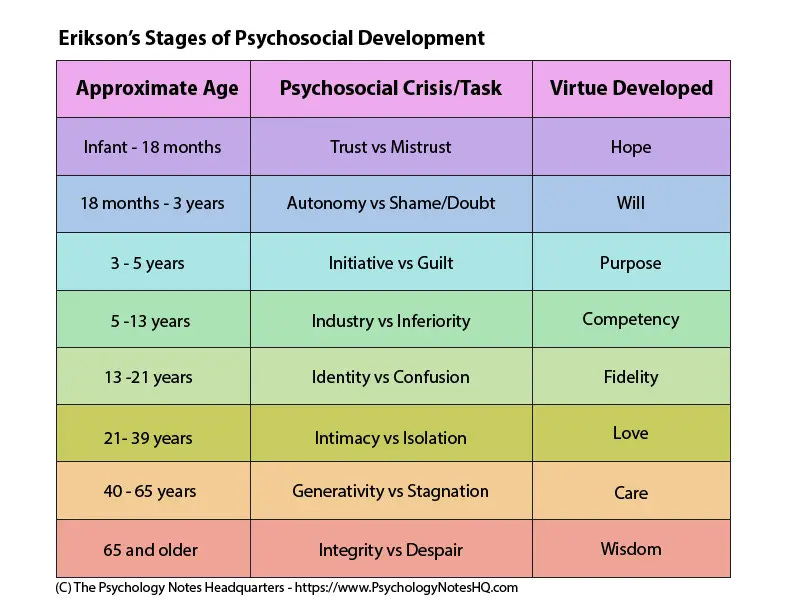
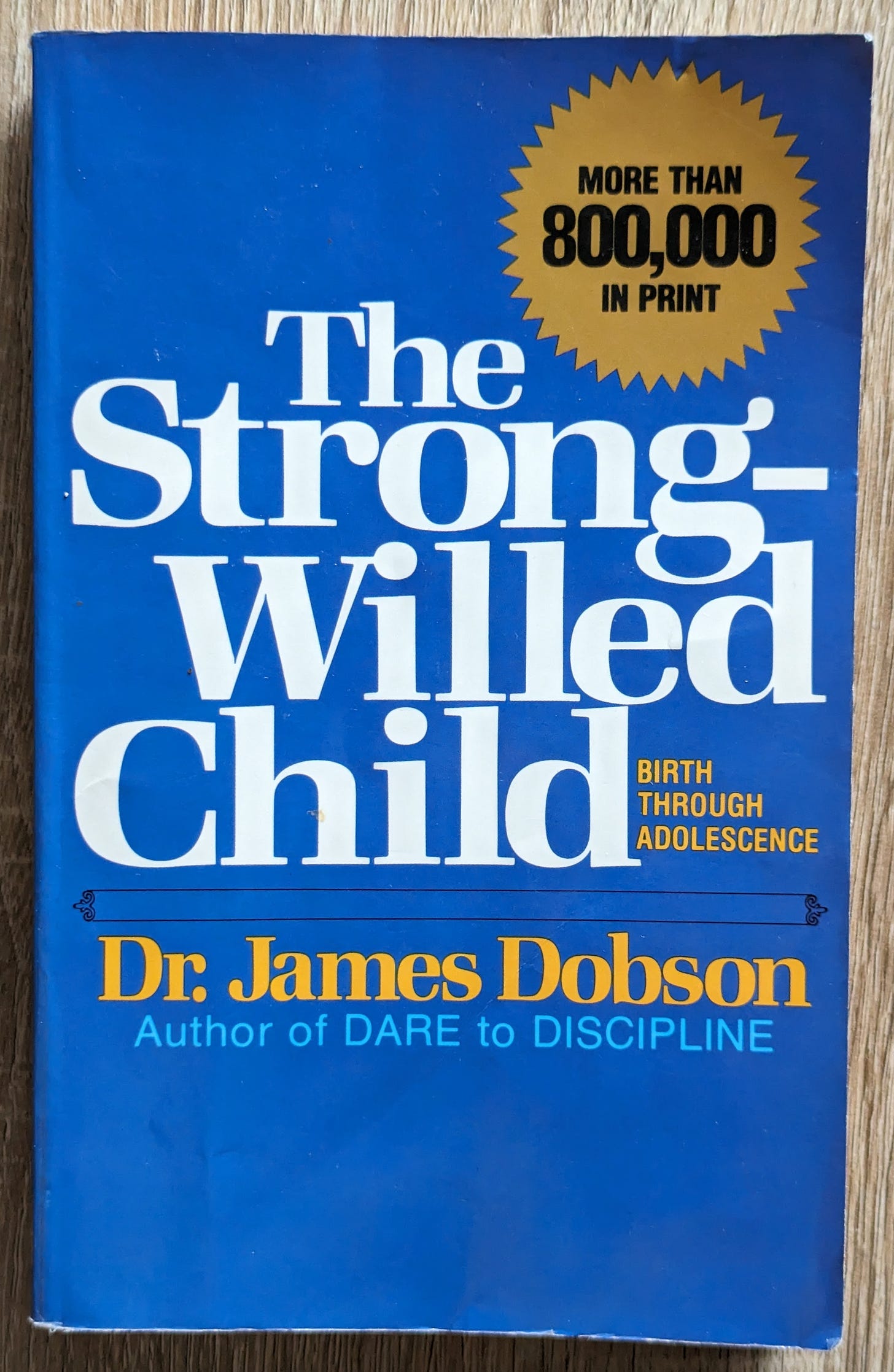
"It’s during this season that they learn whether or not they can trust their own desires, or if following them will lead to pain and shame."
DL, you once again nailed it. This is precisely what I'm dealing with now,in my 40s. A recent convo with my partner made me realize that I've been dissociated from Desire for ages. I wouldn't be surprised if she was banished when I was a toddler. I am afraid to say what I want in any aspect of life, and often I truly don't know what I want at all. It's like my Desire has been buried deep in a mountain cave, with layers of protection around her - fences, barbed wire, armed guards, the works. She's always been there but it's been safer to keep her far from my life and never acknowledge her. I'm slowly learning to check in with my body and my inner child(ren) to listen to what they want. It feels like so many things are tied to this.... It's going to be a long path to bring her out into the light!
My spidey-senses were going off this morning reading the opening so I decided to wait until after work to finish it. I’m glad I did because this rocked my shit real hard. My mother has straight up told me that she is so confused as to why I have so much anxiety and why I’ve struggled with confidence and indecision. But suggesting it might have something to do with the messages I received as a child from my family is completely unacceptable and ungrateful.